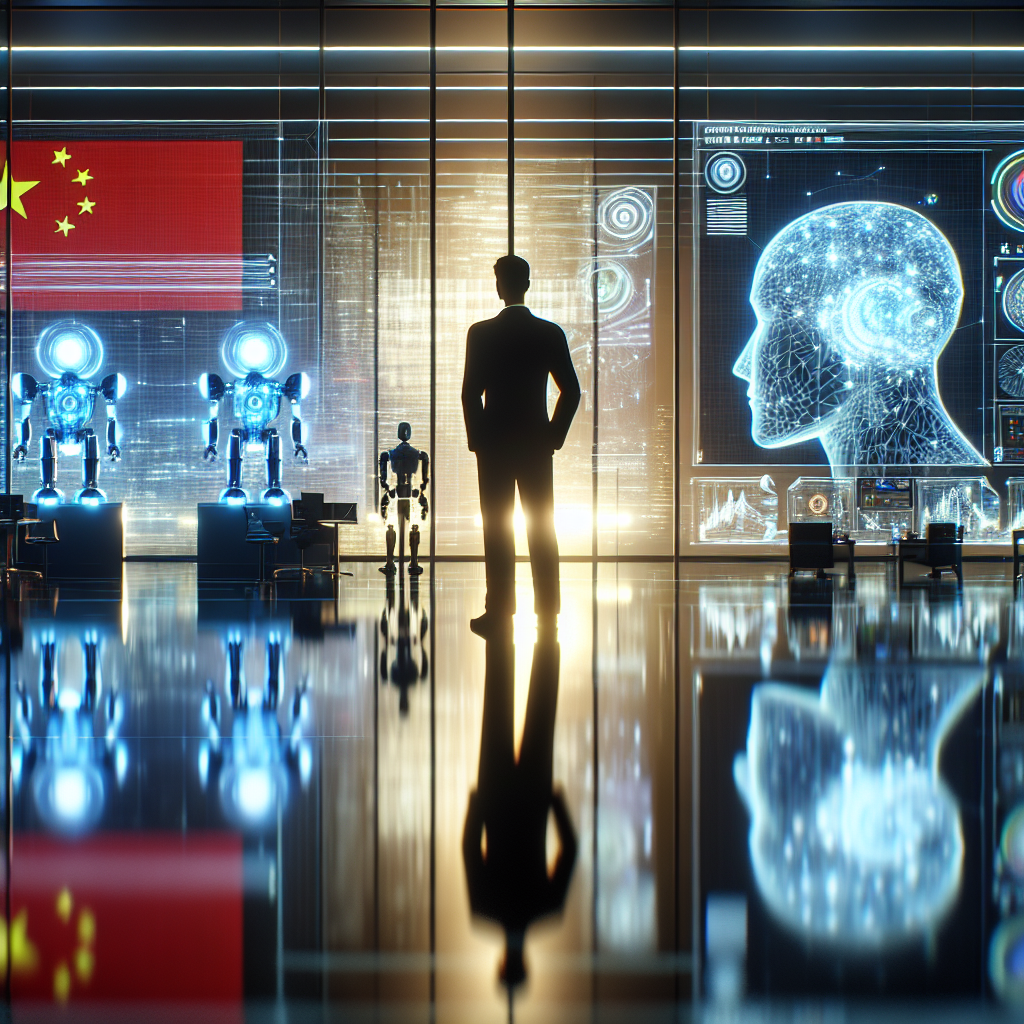Chinese AI is Catching Up, Posing a Dilemma for Donald Trump
The rapid advancements in artificial intelligence (AI) in China are creating significant challenges for the United States, particularly under the leadership of Donald Trump. As the global landscape shifts towards a more tech-driven economy, China’s ability to innovate and leverage AI technologies is raising concerns about its position in global power dynamics. This article explores how the rise of Chinese AI is creating a dilemma for Trump and what it means for the future of international relations.
The Rise of Chinese AI
In recent years, China has made remarkable strides in the field of artificial intelligence. Backed by substantial government investment and a burgeoning tech industry, Chinese companies are at the forefront of AI research and development. Beijing’s ambitious plans, articulated in its “Next Generation Artificial Intelligence Development Plan,” aim to make China the world leader in AI by 2030. This strategic vision encapsulates a comprehensive approach to fostering innovation, talent, and infrastructure to support AI initiatives.
China’s focus on AI is not limited to commercial applications. The government has also harnessed AI technologies for national security, surveillance, and social governance. The use of AI in monitoring its population through facial recognition systems and social credit systems showcases how technology can be integrated into governance, raising ethical questions that resonate worldwide.
AI as a Geopolitical Tool
While the technological advancements are impressive, the implications extend beyond economics to geopolitics. As AI becomes a pivotal component in military capabilities, China’s advancements pose a direct challenge to U.S. dominance. The U.S. has long relied on its technological edge for strategic advantages in defense and intelligence. However, with China rapidly catching up, the balance of power is being redefined.
For Trump, maintaining U.S. supremacy in AI has become a critical national priority. Under his administration, initiatives aimed at boosting American AI research and development have been launched. However, the challenge lies in ensuring that these efforts resonate with the urgency required to counter China’s advancements. Trump’s approach has often been characterized by a mix of isolationism and protectionism, which may not adequately address the need for a collaborative global framework to tackle AI ethics, governance, and competition.
The Economic Dilemma
The economic implications of China’s rise in AI also present a dilemma for the Trump administration. On one hand, the U.S. faces the risk of losing its competitive edge, which could lead to job losses, economic stagnation, and a diminished role in the global economy. On the other hand, the U.S. economy is intricately linked to global supply chains and international markets, making outright confrontation with China a complicated and potentially costly endeavor.
Trump’s emphasis on “America First” has led to trade wars and restrictions on Chinese tech companies, such as Huawei. While these actions aim to protect U.S. interests, they also risk alienating allies and driving China to bolster its self-sufficiency in technology. Furthermore, aggressive policies against Chinese firms could inadvertently stifle innovation in the U.S. by limiting collaborative opportunities that often yield advancements in AI and related fields.
The Challenge of Collaboration
One of the most significant dilemmas for Trump is finding a balance between competition and collaboration. AI is a global phenomenon that transcends borders. The complex nature of AI research necessitates cooperation among nations, especially regarding ethical considerations, data privacy, and security concerns. However, rising tensions between the U.S. and China have complicated collaborative efforts.
The challenge becomes even more pronounced as AI technologies permeate various sectors, from healthcare to transportation, and even in the field of renewable energy. If the U.S. is to remain a leader in these areas, fostering a collaborative environment that encourages innovation and responsible AI usage is essential. Yet, achieving this goal while managing national security concerns and competitive pressures remains a tightrope walk for the Trump administration.
The Ethical Considerations
As AI technologies evolve, ethical concerns emerge, particularly in the context of surveillance and data privacy. China’s model, which leverages AI for social control, stands in stark contrast to the democratic values espoused by the U.S. This difference in approach raises ethical dilemmas that need to be addressed, especially as both nations vie for global influence.
For Trump, navigating these ethical challenges involves a delicate balance. On one side, he must advocate for American values and human rights while simultaneously pushing for technological advancement. Furthermore, the U.S. faces pressure to lead by example in establishing frameworks for ethical AI use, which can include transparency, accountability, and fairness.
Future Implications
The future of AI and its implications for U.S.-China relations will depend on how Trump and subsequent administrations respond to the challenges posed by China’s AI advancements. The dilemma is not merely about outpacing a competitor; it’s about envisioning a framework in which AI can be developed responsibly and ethically.
As the competition heats up, the U.S. must prioritize investment in research and education, cultivate talent, and encourage public-private partnerships that can harness the full potential of AI. Moreover, engaging in dialogue with international partners to set global standards for AI governance will be critical in establishing a cooperative global landscape.
Conclusion
The rise of Chinese AI represents a multifaceted dilemma for Donald Trump and the future of U.S. foreign policy. The balance between competition and collaboration, economic interests, ethical considerations, and national security will shape how the U.S. navigates this rapidly evolving landscape. As AI continues to redefine global power dynamics, the response to these challenges will determine whether the U.S. can maintain its leadership role or if it will cede ground to a rising China.
Ultimately, the stakes are high—not just for the two superpowers involved, but for the global community that must contend with the implications of AI on society, governance, and international relations. The decisions made today will echo in the corridors of power for years to come, making it imperative for leaders to approach this issue with foresight and responsibility.



